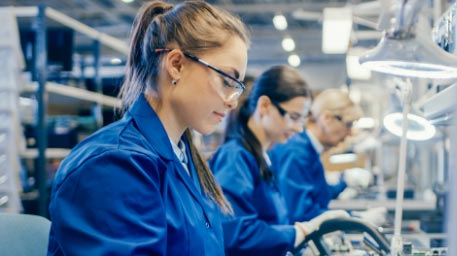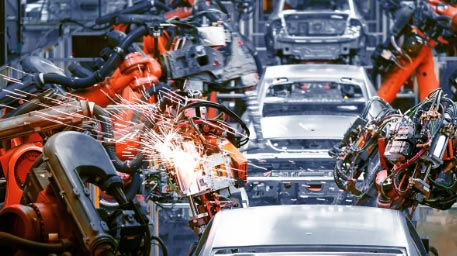Millbank has been around since 1985 and from its earliest days has had close links with the local chemical industry.
It’s no coincidence that Millbank is headquartered in Runcorn. The influence of chemical businesses like ICI and more recently companies like INEOS and INOVYN has built many towns, such as Runcorn, into what they are now.
In this article, we’re going to give a brief overview of why the chemical industry is so important to the local area and to Millbank.
200 years of Chemicals
Runcorn’s importance to the UK chemical industry started with the soap factories of Johnson and Hazlehurst in the early 1800s. During the industrial revolution, the town was a key link between Manchester, Liverpool, mid-Cheshire and international markets because of the Bridgwater Canal and location on the River Mersey.
The North West soap manufacturers were significant to the whole UK chemical industry. The Lever Brothers entered the soap business in Warrington in 1885, before founding the model village of Port Sunlight near Bromborough for workers of a new factory in 1887. A 1930 merger with Dutch company Margarine Unie created the largest British company of the time, Unilever.
The landscape of the chemicals industry was changed in 1926 when Brunner Mond, United Alkali, British Dyestuffs and Nobel Industries merged to form the hugely influential ICI (Imperial Chemical Industries).
ICI was a giant of chemical production, with plants and divisions spread across the UK and a huge footprint here in Runcorn.
Still going strong
Today Millbank continues to work with local chemical companies large and small. The Runcorn and Widnes region remains the largest and most diverse for chemical production in the country, with 50,000 people working in the industry across 500 sites and companies. The wider North West chemicals industry is worth £10 billion to the UK and is a major part of the economy of the North West.
Runcorn is a microcosm of the UK chemicals industry: More than 3,000 companies from around the world have a presence in the UK.
The UK is also the third largest exporter of pharmaceuticals in the world, accounting for our largest economical activity after tourism and financial services.
The future of the Chemicals Industry
As we look to the future, while there is uncertainty over Brexit and the disruption it could bring, there is a high level of optimism in the industry according to European Commission data collected by CBI.
Technology is also playing an increasingly important role, as manufacturers continue to grow their R&D investments and embrace Industry 4.0 and the Internet of Things to increase productivity and innovation.
Wherever the chemicals industry goes next, Millbank will remain a key supplier of skilled contract and permanent staff. See our current vacancies in the Process and Chemical industry below.





